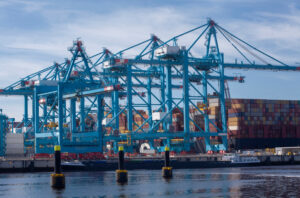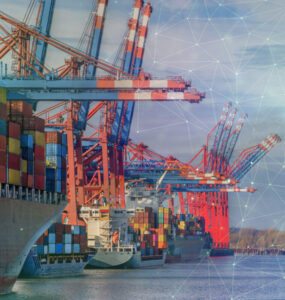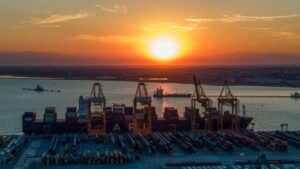This blog contribution from DP World continues on from 'PTI Blog: DP World’s Supply Chain Diet'
The fact that many foodstuffs are perishable presents an additional challenge for the supply chain, effectively creating a ‘race against time’.
Refrigerated ships and containers are necessary, as is, of course, supply chain agility and transparency.
The so-called “cold chain”, which focuses mainly on fresh produce and pharmaceutical industries, requires additional maintenance of product-specific environment parameters that include air quality and temperature, making it one of the most complicated supply chains to operate.
Goods in the cold chain, unlike others, are always en route towards end use or destination.
Whether foodstuffs are perishable or not, speed and flexibility are still the dishes of the day.
At the DP World facility in Tarragona, for example, we strip grain containers in the warehouses in order to store the product until delivery to the customer.
Delivery to the customer is then made by bulk, integrating all customs and port admin processes for the container-bulk combination import, which speeds up and simplifies the process.
Not only is this important for improving customs and inspections procedures, it also helps release the container to the carrier as soon as possible, ensuring the quality of the product.
When looking at the agriculture and foods sectors, intermodal freight transportation looks very appetizing for a variety of reasons.
For instance, the flexibility allows for route changes and reduces highway use, creating more reliable delivery time notifications and leaner planning processes in an industry when speed and timing are essential.
Read a Port Technology technical paper by DP World on linking the supply chain
In addition to the flexibility intermodal capabilities provide, there are many other significant advantages, such as less noise pollution, more reliable delivery time notifications, the easing of traffic and customs processes, leaner planning processes and higher quality service standards.
All of these considerations were central to the conceptualization and creation of DP World’s intermodal offering.
By offering logistics partners intermodal connections as a means to avoid bottlenecks, firms can be sure that their goods will arrive on time and in perfect shape.
At DP World Constanta, for example, we offer intermodal services to take goods onwards into parts of central Europe, with first-class feeder connections to the Ukraine, Russia, Bulgaria, Georgia and Moldova.
DP World Constanta offers importers and exporters in Central Europe speedier and more cost-effective access to the Far East market than movement via the traditional routing over North Continental ports by avoiding congested intermodal bottlenecks in Western Europe.
Closer to home, at DP World London Gateway’s logistics park, innovations like SH Pratt’s Halo offers state-of-the-art, multi-chambered storage capable of handling multi-temperature products, before distributing them to the UK consumer market.
Within the complex and ever-changing food and agriculture sectors, intermodal logistics offers a range of benefits to ensure that quality of product remains consistent from farm to fork.
With a growing number of mouths to feed globally and the impacts of climate change already being felt in some agricultural hubs, intermodal capabilities offer businesses the reliability needed in a changing market.
By squeezing out wastage, providing flexibility and ensuring quality throughout the entire process, intermodal terminals will help food and agriculture step up to the challenges of the 21st century.
About the author:
Dirk van der Bosch is the Commercial Director of Europe at DP World Europe & Russia, which owns 10 ports and 5 inland terminals across the continent, employing more than 4,000 employees across 37 countries.
DP World is a global terminal operator at 78 ports in 42 countries. The group handles approximately 9% of the world’s container trade and in 2017, globally DP World handled 70 million TEU.
DP World Europe and Russia services include container stuffing and de-stuffing, VGM – container weighing, onsite empty depot, logistics parks, freight forwarding, warehousing, container handling, break bulk, cruise ro-ro car, multi-purpose and intermodal infrastructure.












